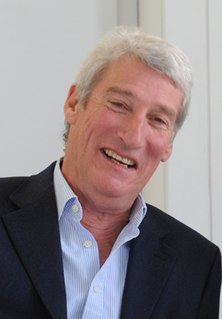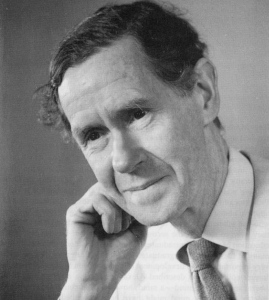A Quote by May Sarton
For me a true poem is on the way when I begin to be haunted, when it seems as if I were being asked an inescapable question by an angel with whom I must wrestle to get at the answer.
Related Quotes
To be a scientist you have to be willing to live with uncertainty for a long time. Research scientists begin with a question and they take a decade or two to find an answer. Then the answer they get may not even answer the question they thought it would. You have to have a supple enough mind to be open to the possibility that the answer sometimes precedes the question itself.
• This seems impossible to me. It seems biologically impossible to stay the same size, although I must. It seems one must always be either bigger or smaller than they were at some arbitrary point in time to which all things are compared. The panties that are possibly tighter than they were. When? You can't say when. But you are absolutely positive no question that it's true.
And I vaguely remember her smiling at me from the door way the glittering ambiguity of a girls smile, which seems to promise an answer to the question, but never gives it. The question, the one we’ve all been asking since girls stopped being gross, the question that is to simple to be uncomplicated: Does she like me or does she LIKE me?
It seems to me that the desire to make art produces an ongoing experience of longing, a restlessness sometimes, but not inevitably, played out romantically, or sexually. Always there seems something ahead, the next poem or story, visible, at least, apprehensible, but unreachable. To perceive it at all is to be haunted by it; some sound, some tone, becomes a torment — the poem embodying that sound seems to exist somewhere already finished. It’s like a lighthouse, except that, as one swims towards it, it backs away.
"Where do you get your ideas?" That's the one question I'm genuinely sick of being asked, and also genuinely fascinated by. What fascinates me is not that people ask the question, but what kind of answer are they really looking for? Because if I tell them the truth, which is "I make them up," they seem very disappointed. They want to know about the trek I do once a year to the mountain.
More and more it seems to me that the philosopher, being of necessity a man of tomorrow and the day after tomorrow, has always found himself, and had to find himself, in contradiction to his today: his enemy was ever the ideal of today. So far all these extraordinary furtherers of men whom one calls philosophers, though they themselves have rarely felt like friends of wisdom but rather like disagreeable fools and dangerous question marks, have found their task, their hard, unwanted, inescapable task, but eventually also the greatness of their task, in being the bad conscience of their time.






































